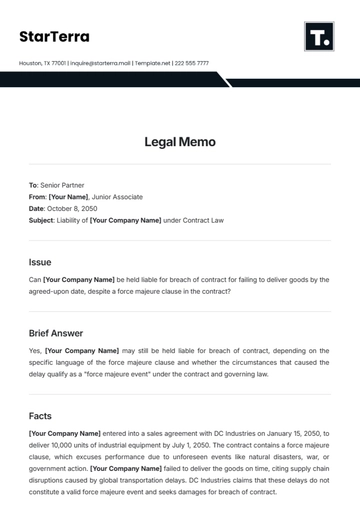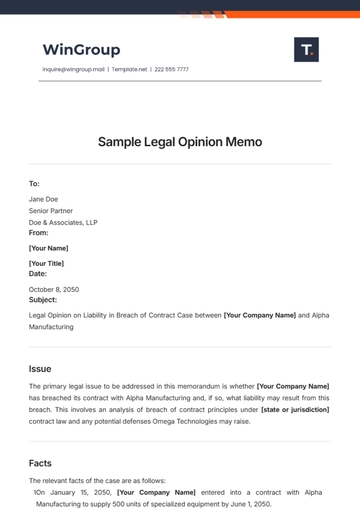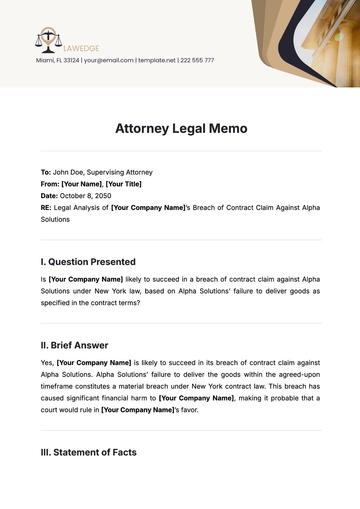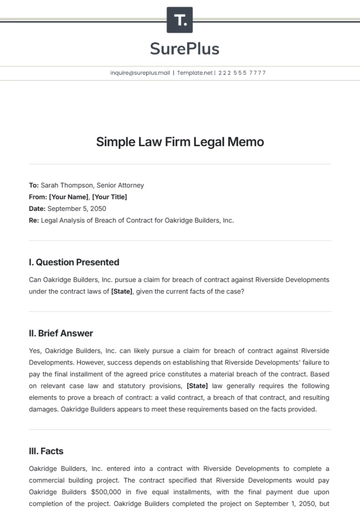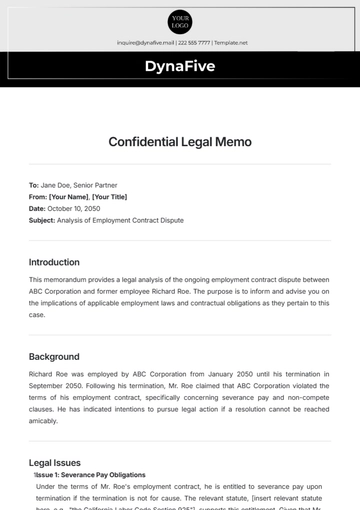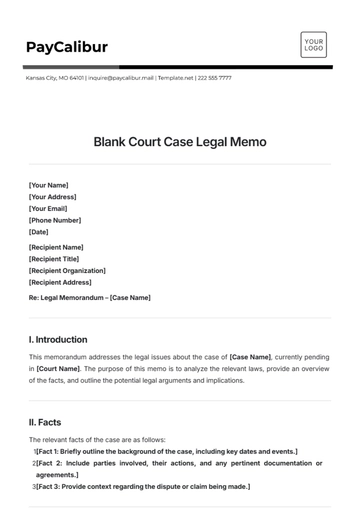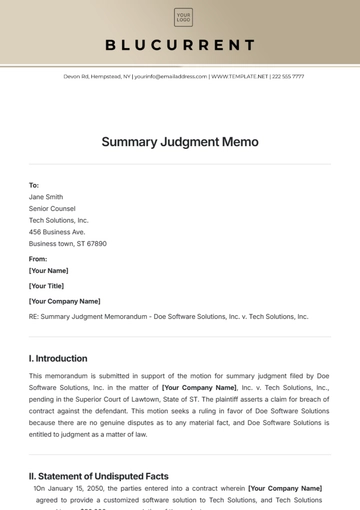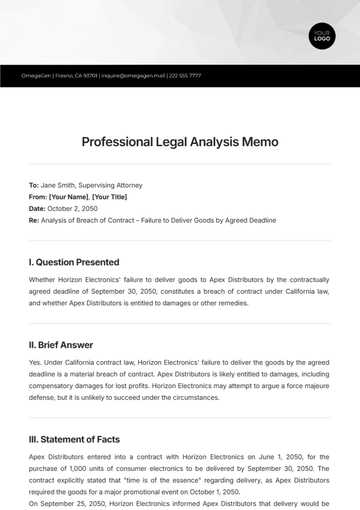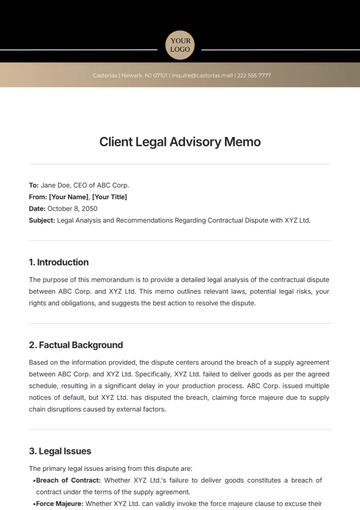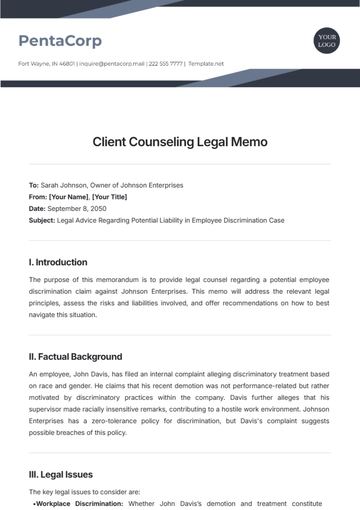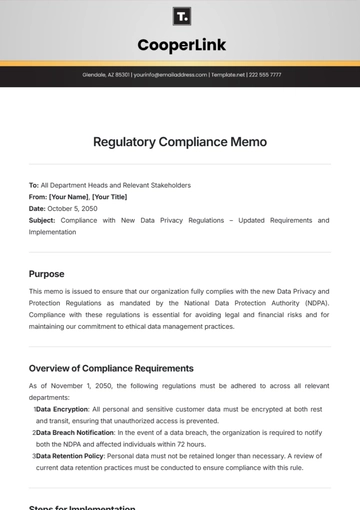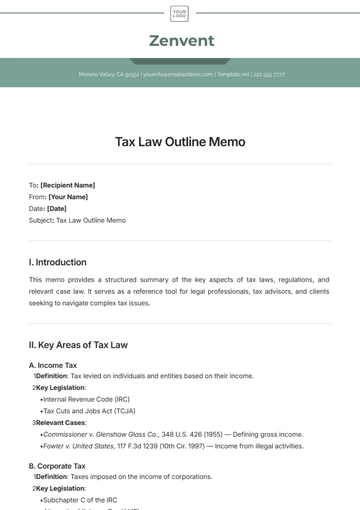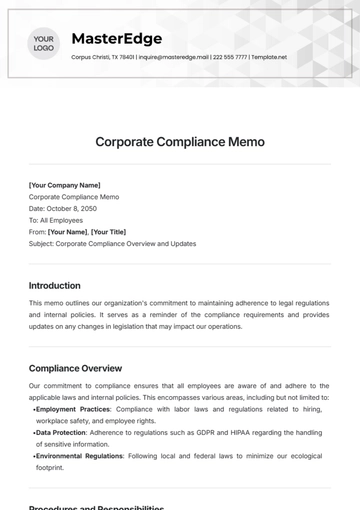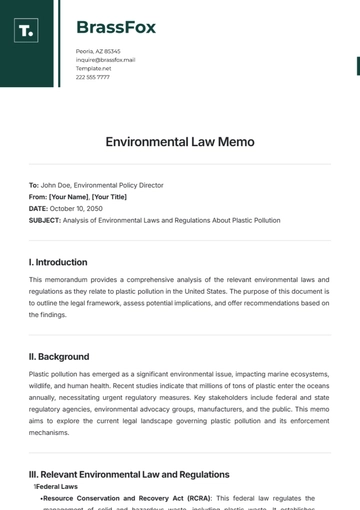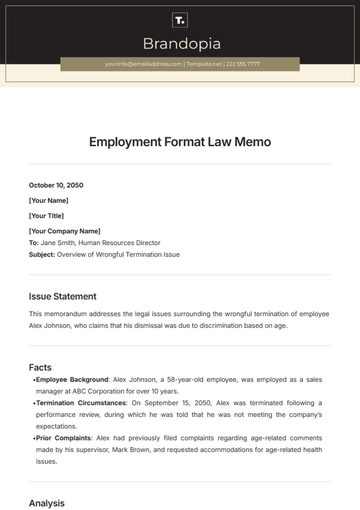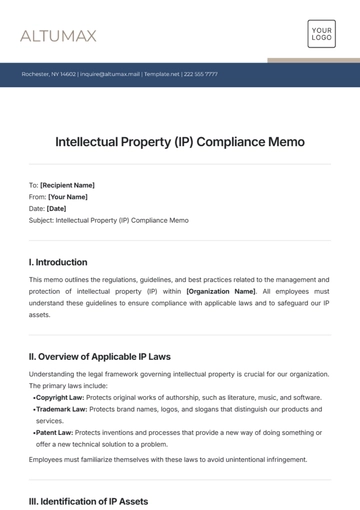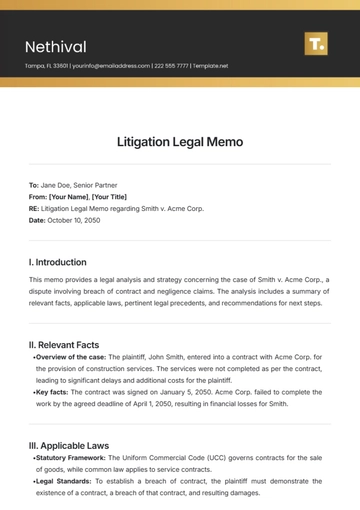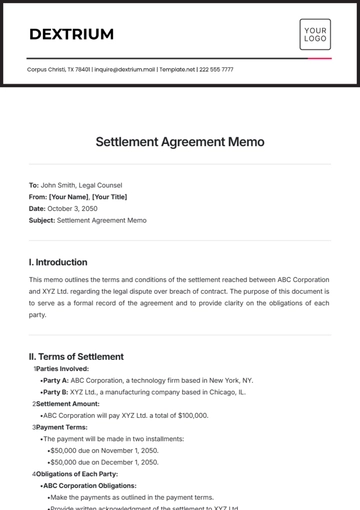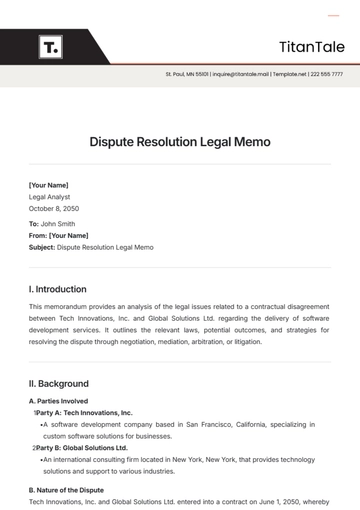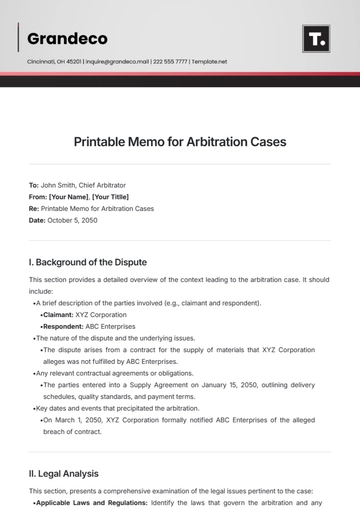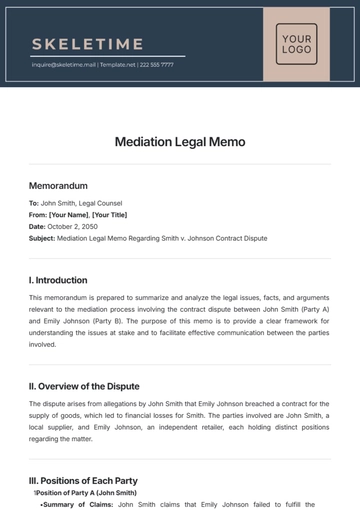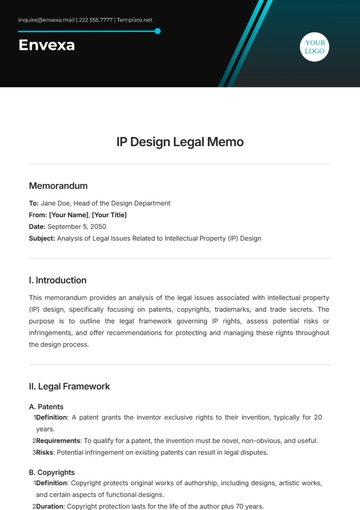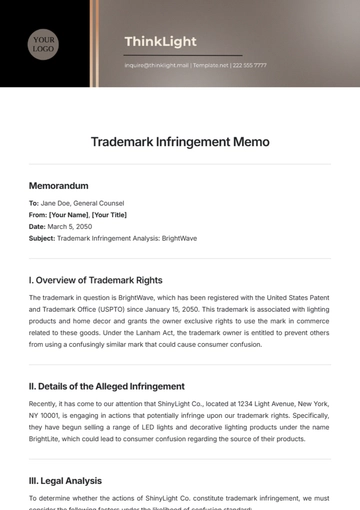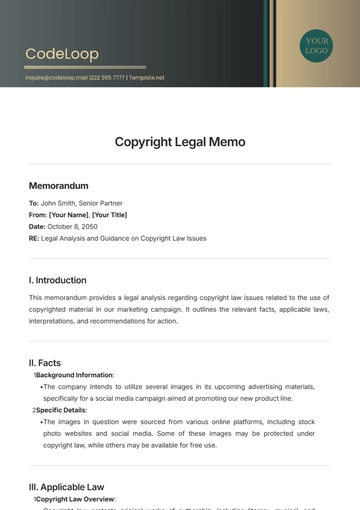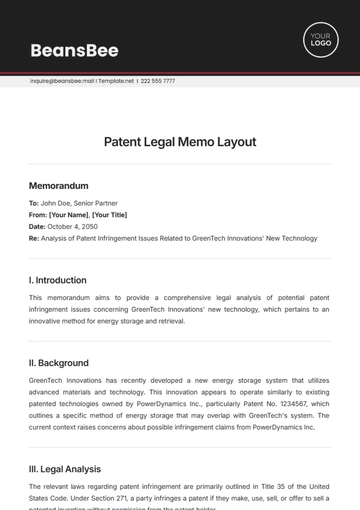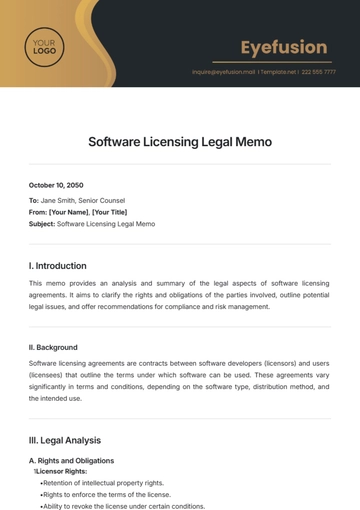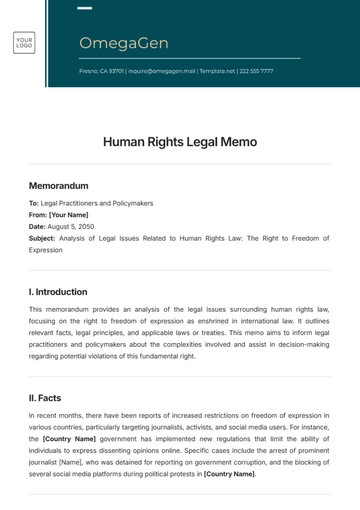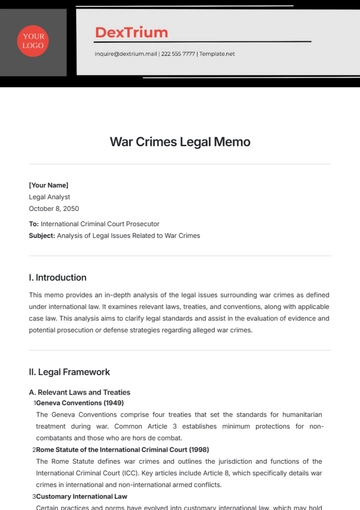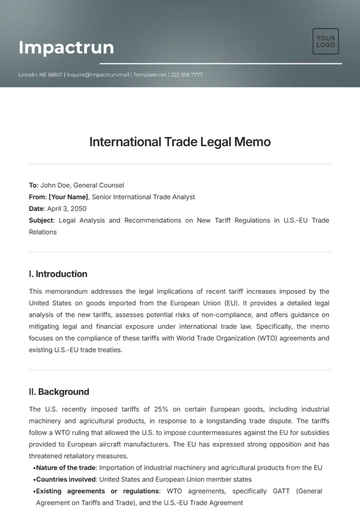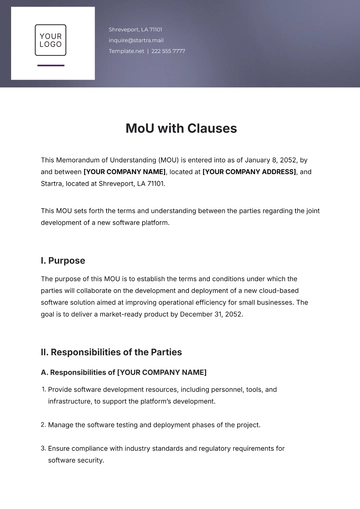Free Law Firm Legal Research Memo
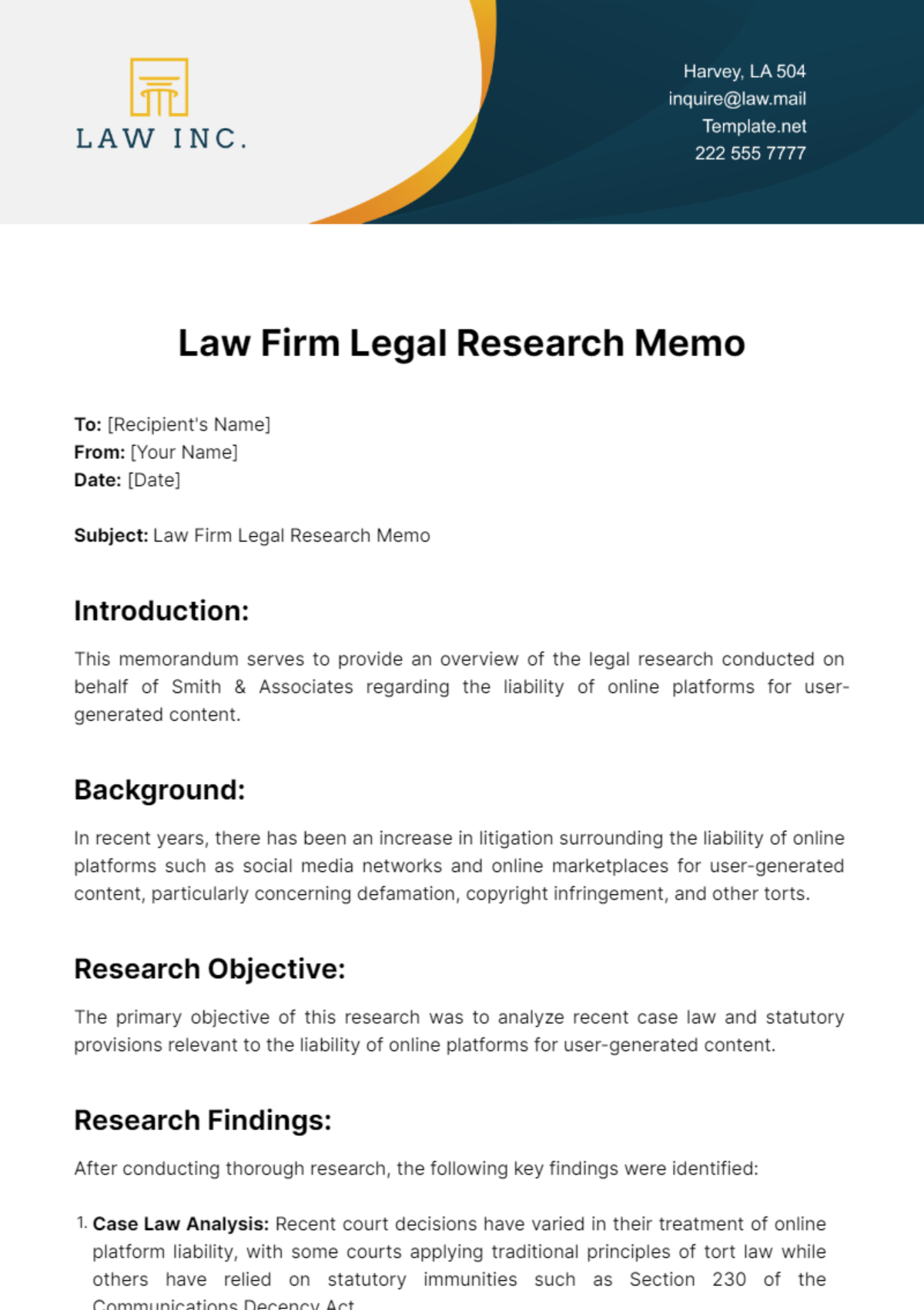
To: [Recipient's Name]
From: [Your Name]
Date: [Date]
Subject: Law Firm Legal Research Memo
Introduction:
This memorandum serves to provide an overview of the legal research conducted on behalf of Smith & Associates regarding the liability of online platforms for user-generated content.
Background:
In recent years, there has been an increase in litigation surrounding the liability of online platforms such as social media networks and online marketplaces for user-generated content, particularly concerning defamation, copyright infringement, and other torts.
Research Objective:
The primary objective of this research was to analyze recent case law and statutory provisions relevant to the liability of online platforms for user-generated content.
Research Findings:
After conducting thorough research, the following key findings were identified:
Case Law Analysis: Recent court decisions have varied in their treatment of online platform liability, with some courts applying traditional principles of tort law while others have relied on statutory immunities such as Section 230 of the Communications Decency Act.
Statutory Analysis: Section 230 of the Communications Decency Act provides broad immunity to online platforms from liability for user-generated content, except in cases involving federal criminal law, intellectual property law, and certain state criminal and civil laws.
Legal Precedents: The landmark case of Stratton Oakmont, Inc. v. Prodigy Services Co. established the principle that online platforms may be held liable for user-generated content if they exercise editorial control over the content, thereby forfeiting their immunity under Section 230.
Secondary Sources: Legal commentators have debated the scope and application of Section 230 immunity, with some advocating for its expansion to protect online platforms from liability for a wider range of harms, while others argue for its limitation to promote accountability.
Legal Arguments: While online platforms may argue for broad immunity under Section 230, plaintiffs may seek to overcome this immunity by demonstrating that the platform exercised editorial control over the content at issue, or by invoking exceptions to immunity such as the knowledge standard outlined in Roommates.com, LLC v. Fair Housing Council of San Fernando Valley.
Conclusion:
Based on the research findings, it is recommended that Smith & Associates advise clients in the online platform industry to exercise caution in their content moderation practices to avoid potential liability, while also advocating for legislative reforms to clarify and update the legal framework governing online platform liability.
Next Steps:
Further analysis may be necessary to assess the potential impact of recent legislative proposals aimed at amending Section 230 of the Communications Decency Act and other relevant statutes.
Attachments:
Summary of Relevant Case Law
Text of Section 230 of the Communications Decency Act
Legal Commentaries on Online Platform Liability
Contact Information:
Should you have any questions or require further clarification on the findings presented in this memo, please do not hesitate to contact [Your Name] at [Your Contact Information].
Thank you for your attention to this matter.
Sincerely,
[Your Name]
[Your Position]
[Your Law Firm Name]
[Your Number]
- 100% Customizable, free editor
- Access 1 Million+ Templates, photo’s & graphics
- Download or share as a template
- Click and replace photos, graphics, text, backgrounds
- Resize, crop, AI write & more
- Access advanced editor
Conduct thorough legal research with Template.net's Law Firm Legal Research Memo Template. This editable and customizable document guides the systematic organization and presentation of research findings. Crafted by legal experts, it ensures clarity and professionalism in memo writing. Editable in our Ai Editor Tool for seamless customization and integration into your firm's documentation workflow.
